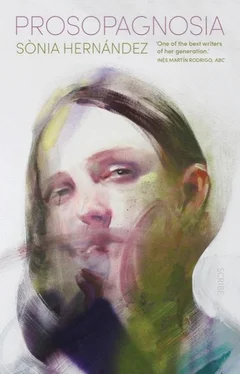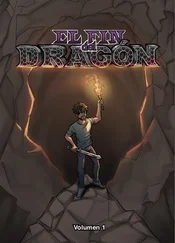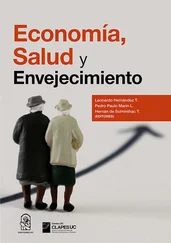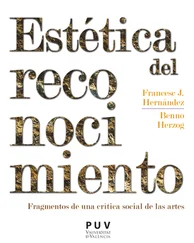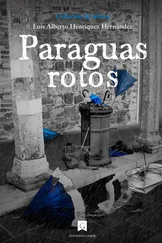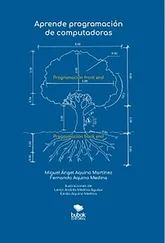The next morning, the painting was no longer leaning against the wall in the entrance hall of the high school. Berta didn’t want to explain what had happened the day before to Lucas or Mario, and she hoped that none of the teachers who had been there would be so indiscreet as to mention it in front of anyone else. Luckily, they didn’t. Even the principal failed to mention it as she came by Berta’s desk to drop off a maroon-coloured envelope that Berta left unopened until she arrived home. Shortly after she went through the doors of the high school, standing by a traffic light on a nearby corner she saw the man who had accompanied her yesterday after her dizzy spell. Although their eyes met, neither one of them greeted the other.
The envelope hadn’t been manufactured in bulk, that much was clear. Someone with skill and good taste had spent a fair amount of time selecting paper that was sufficiently thick, with a texture that showed the plant fibres and a colour that was vibrant without being shrill. It was a package that announced the value of its contents. Berta left it on the sideboard in the hall. She didn’t feel like facing up to whatever it was that the envelope wished to communicate to her. Too many new things had happened in such a short period of time. It was only two months ago that her father had left home, and she thought she had grown used to the new routine, to the changes inflicted upon the stage where her life took place. Her father’s voice could no longer be heard at home, and new objects had gradually replaced the ones that used to be there.
When she found out her father was leaving, she didn’t seem surprised: perhaps she had already begun to believe that only bad things happened to her. That’s also why she didn’t believe her father when he tried to make her understand that they were entering a new phase in their lives, in which there would be many subtle improvements and their relationship would grow stronger. From the outset, Berta realised she would have to deal with unpleasant situations, such as the fact that her father’s new girlfriend had a deformed arm ending in a stump. A large deformed finger, almost like a hook, jutted out from the stump, with a single ridiculous fingernail painted carefully in a garish shade of red.
On the afternoon the three of them met in a local café, she couldn’t get the stump out of her mind while her father was talking. The image of the stump reminded Berta of the exact day she realised she wasn’t destined for beautiful things. That day, her kindergarten teacher, Miss Rosa, had been absent from class. The depot-like building that housed her classroom seemed even greyer than usual, despite the colourful drawings covering the walls and windows of the room. Miss Rosa had a daughter whose name Berta found very strange — Zulema, or Zaida, or something like that. Berta hated her, because with a name like that she could feel special, and Berta wanted Miss Rosa’s love all for herself. Obviously if Miss Rosa had her own daughter, then she couldn’t love Berta all that much, even if she was always the first one to answer the tough questions or to volunteer to clean the blackboard. When Miss Rosa was absent from class, a much older woman came to substitute for her. She wore a dark woollen skirt that reached below her fleshy, lumpy knees but which left her strong calves on display, along with her ankles, which always seemed to be swollen. What’s more, she wore huge shoes with long brown shoelaces. These were the sorts of legs Berta’s grandmother’s friends had, those fat old ladies who were always wrapped up in gowns and florid aprons, scrubbing the stairs. They weren’t the legs of a teacher who could help them understand how fun it was to learn the alphabet or draw, so that they could replicate the beautiful objects and nice little animals that made up the world.
Berta also disliked the large, dark jumpers the teacher wore, under which she could sense the enormous sagging breasts that hung down to her waist. She was an old lady, and old ladies shouldn’t teach little girls. Her face was round, framed by hair that was wavy without quite being curly, a faded brown with grey roots showing through, hair that she gathered back with a headband. Old women shouldn’t use such a childish accessory either. The most repulsive thing about her face was the wart she had on the right side of her mouth. She looked exactly like a witch. It hurt Berta to have this woman as Miss Rosa’s substitute teacher.
But it wasn’t even the wart sitting on the old woman’s hair-shadowed lip that made Berta feel most revolted. The thing she couldn’t stand, the thing that made every hair on her body stand on end, was the teacher’s undeveloped, deformed hand. It looked like a doll’s hand, smaller than normal, incomplete. It would take Berta many years to learn this use of the word stump , but that’s what it was: a stump with a fleshy hook sticking out of it, and one huge fingernail with a bunch of other stubs a few centimetres long. It was as if someone had mangled the fingers, which in any case could never have grown from such a small hand.
While that witch was in charge of the classroom, Berta never offered to clean the blackboard. The old woman wrote with her left hand and clutched the duster up near her armpit, between her body and her arm, right where that non-hand dangled, a limb far more squalid than the left arm. Berta couldn’t stand it. She couldn’t look at her. That’s also why she couldn’t raise her own hand, so young and healthy and well-formed, to answer questions before the others. For many years, she held on to the image of horror that woman conjured in her. A few times, Berta had come across the substitute teacher in the neighbourhood, and she always looked down, hoping she wouldn’t recognise her, hoping she wouldn’t even see her. On the other hand, she never came across Miss Rosa outside of school, because she lived in a different, much nicer neighbourhood, with her horrible daughter with the strange name, whom she probably took to the park to play with other girls in pretty dresses.
The image of the witch returned powerfully, after so many years, on the afternoon when Berta met with her father and his new girlfriend in a noisy café. By then, she already knew she was obliged to live alongside the ugliest things in the world.
A few days after that meeting, the old man appeared and helped her when she was about to pass out at school. The next day, the principal handed her a large envelope that, without a doubt, had something to do with the old man Berta hadn’t wanted to acknowledge when she left the school. Too many things to absorb, so the best thing would be to leave it all to one side and dedicate her time to watching how her face breaks down in the mirror’s reflection, until it becomes something she no longer recognises, just like how her life had broken down in such a brief period of time. But that afternoon, she was having trouble concentrating. She was trying to look directly with her brain to keep her eyes and her optic nerve from distorting the image she was seeing, but it was complicated. She remembered how difficult it had been in the beginning to see the changes in the cube her teacher had drawn on the board. In fact, she hadn’t been able to see the different versions until they had been pointed out to her. She hadn’t been able to fully locate the perspective she was looking for in the painting in the entrance hall at school, either. That’s when she had the feeling that there was a direct relationship between the painting and the envelope that had been delivered to her by the principal.
The envelope contained a thick piece of paper, and on the blank side you could see the same thick fibres. On the other side, a number of horizontal lines stretched across the surface in a much straighter fashion than some vertical lines of different thicknesses and colours, which were much less firm, and which, on the whole, produced a multitude of irregular squares in warm, ochre tones. Berta searched for the perspective, the mutability of the squares as in the cube drawn by her teacher, but something wasn’t right — she couldn’t find the perspective, or even a hint of it, like she had been able to with the painting in the entrance hall at school. It wasn’t a very good painting. Looking at it properly, you barely had to glance at it before it broke down into the different elements it was made of, because it was nothing more than a jumble of lines and colour that never achieved unity. That’s why someone had given it to her; because it was bad. If someone had given her a valuable painting, that would have been surprising.
Читать дальше
